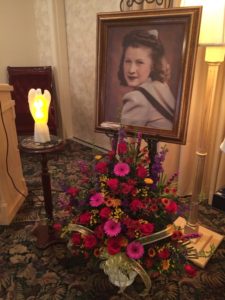(I missed a week. Gotta break that habit).

“If you love what you do, you’ll never work a day in your life. That’s a lie! If you love what you do, you’ll work hard everyday.”
This was spoken by Chris Spalding, the co-owner of the ballroom dance studio I attend on a regular basis. It was part of the toast he gave during the fifth anniversary party for the studio. I loved it because it was challenging and encouraging. It’s not something one typically hears.
We all want to work a job we love. Spending hours of our day doing something we hate is soul-crushing. It’s a consequence of the Fall in Eden (Gen. 3:17-19), so we want to stave it off as much as possible. Unfortunately, millennials in particular have a reputation for chasing unattainable “dream jobs” or thinking they’re entitled to an easy life (and then crumbling under the slightest pressure when they don’t get it). Whether this reputation is deserved or not, there are many people who refuse to accept the reality of toil.
That’s why I love what Mr. Spalding said. It’s a mindset that lives within the tension: Love what you do but work hard at it. The curse hasn’t been lifted. We still have to make a living by the sweat of our brows. That is an inescapable reality until Christ returns to “make all things new.” But when we are doing what God created us to, we can find joy in the midst of that toil. Joy that will compel us to work even harder. We’ll dream bigger, take more risks, and strive to become better. Work becomes more than a means to make money.
This, I believe, is an example of God’s grace to humanity. He didn’t abandon us in our sin. He instilled desires and talents within us, and those can lead us to the purpose He gave us. I’m reminded of what Eric Liddell said in the film Chariots of Fire (which I still haven’t seen), “I believe God made me for a purpose, but He also made me fast. And when I run I feel His pleasure.” That’s the feeling every human being, whether they’ll admit it or not, longs to find. It’s God’s foothold in this fallen world, His way of keeping claim on His creation. And, I daresay, a means of reaching out to humanity.
People aren’t good at living within tension, but the wise will tell you that there are many paradoxes in life. They can’t all be solved. The quicker that’s accepted, the easier life becomes.
Do you love what you do? Work hard at it!
Do you hate what you do? Make a change! You’ll do yourself and the world a favor.
How do you live this out? What do you do to live in this tension between toil and joy?

